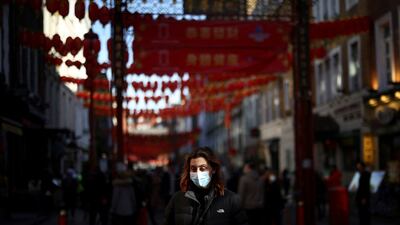Global experts still do not know in which environments coronavirus transmission occurs most easily, Sir Patrick Vallance told a virtual Royal Society conference on Thursday.
“Transmission and the environment — pulling together a group of experts to answer questions which we still don't have answers to, but are incredibly important,” he said, summarising work done by global experts in recent months.
“Such as, which environments does transmission occur in most easily, why is that the case, and how can you think about reducing risk to transmission through environmental and other interventions?”
Sir Patrick also said that a coronavirus variant “that escapes immunity” could take the world by surprise again.
The government's chief scientific adviser for England also said there will be future pandemics which look very different to the current one.
“It's very obvious to everyone in this meeting that there will be a future pandemic. That, I think, is clear,” he said.
“What's it is going to be, we have no idea.
“It's also clear this one is not over and we've got very high infection rates at the moment.
“And the room for this virus to evolve remains very large, so we could be taken by surprise again with a variant that escapes immunity.
“The world needs to be ready” for the next pandemic, Sir Patrick went on to day.
“We've got no idea what the next pandemic might be and it certainly won't be the same as this one,” he told the virtual Royal Society conference.
“Whatever it is, the world needs to be ready to respond.
“And that led to the 100 Days Mission, which was a statement built up with experts around the world to say we all need to try to get the world in a place, where within a hundred days of a new infectious agent being identified, we can have vaccines ready for production at scale, an initial regiment of therapeutics, and diagnostics which are reliable and approved.”
He said that before the pandemic, some efforts to face future diseases were underfunded, which undermined the operational ability to make advances.
“The underfunding of Public Health England for virtually a decade beforehand was an important part of why certain things were difficult and it's very important that we don't fall into that trap again,” he said.








Also on Thursday, Dame Jenny Harries, chief executive of the UK Health Security Agency, said Covid-19 infections are at “a very high level” but that they are not translating into hospital admissions and deaths.
“There are around three and a half million people in the last week up to that point, up to March 25, which is a very high level,” she told BBC Radio 4's Today programme.
“But what we're not seeing of course is a significant translation of that into serious illness, hospitalisations and most importantly, deaths.
“There has been a small uptick in deaths in the last week and again … some hospitals are coming under significant pressure and we shouldn't underestimate that.
“But overall, immune defences through the vaccination programme has been really successful and of course, we now have treatments".
Asked if it is the right time to end free Covid testing, Dame Jenny said the UK must come to terms with the pandemic remaining unpredictable.
“The pandemic takes its own course and it will remain unpredictable to a large extent for the next, say, 18 months to two years, I think is general consensus, and we will have to be continuously be alert to monitor those rates and to respond appropriately to any new variants,” she said.
“But as with other respiratory viruses such as flu … at some point we have to come to terms with that".
People should continue to take precautions, she said, and added that she will continue to wear a mask in shops and on public transport.
She said warmer weather will likely drive down infection rates and that there are high levels of population immunity as long as people come forward for booster vaccines.


